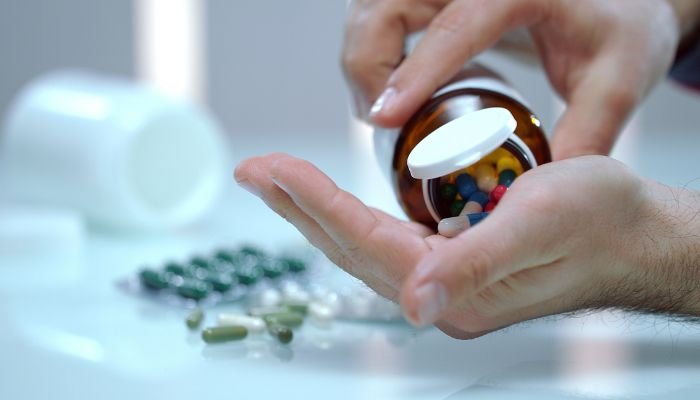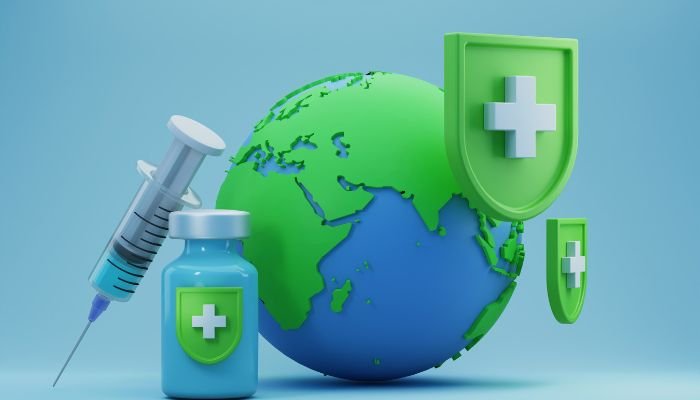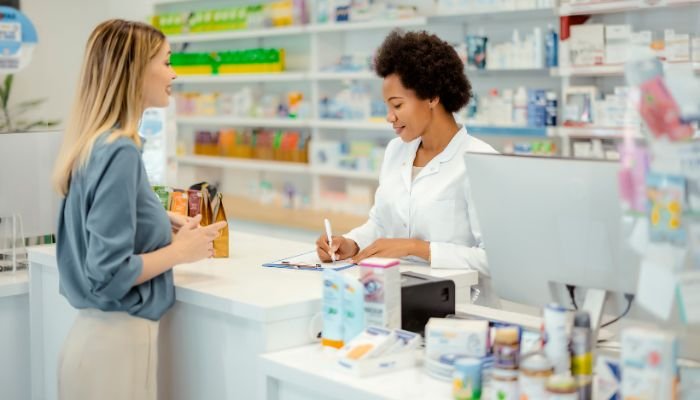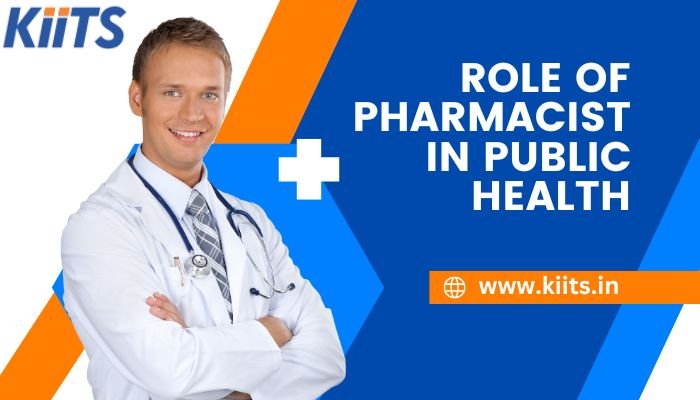Pharmacists have an important impact on the public health access to medication management, patient counselling and outreach. Pharmacists, being among the most trusted healthcare practitioners in their communities, are instrumental in implementing public health programs on both clinical and regulatory levels by partnering with other healthcare providers to meet optimal individual and population health outcomes. This is a blog where I discuss the complex role that pharmacists play in public health and how they can truly help contribute to keeping people well and preventing disease.
Pharmaceutical care and Safety

Ensuring Safe and Effective Use of Medications: This is one of the fundamental roles / duties of pharmacists in public health. We will provide dispensing and education services but also perform professional medication reviews, to review the drug allergies of a resident for validation purposes, check for potential misuse with opioids, transcribe orders, side effect monitoring and assess appropriateness using criteria; so we try our best to prevent all associated adverse events that could occur from the medication used. Pharmacists provide medication counselling and patient education, allowing patients to make informed decisions regarding their medications, optimise adherence to the regimen prescribed by healthcare providers, and achieve control over long-term conditions.
Immunizations and Disease Prevention

Pharmacists are integral in advocating for immunization, thereby, controlling communicable diseases surrounding the community. They are trained to give both vaccinations for routine immunization (influenza, pneumococcus or tetanus shots) and seasonal ones. Vaccines give pharmacists an opportunity to contribute to community immunity through equal access of vaccines as well as advocating for vaccinations awareness campaigns which prevent vaccine-preventable diseases.
Health Advocacy and Awareness

As frontline health care practitioners, pharmacists provide a wealth of information on medication safety, disease prevention and healthy lifestyle practices; they also serve as educators and advocates for public health initiatives. Pharmacists use community outreach programs, health screenings and wellness workshops to enable individuals to better manage their health and make preventative steps that can help them avoid disease. Pharmacist plays a roles in Public health issues such as opioid abuse, smoking cessation and antimicrobial resistance through outreach programs educational prevention.
Collaboration with Healthcare Providers
Pharmacists working with prescribers, and other health professionals select the medication for a condition or patient population pioneering in choosing optimal dosage and drug form as well as minimizing toxic side effects. Pharmacists contribute distinctive medication management and therapeutic knowledge to patient care, specifically med rec and therapy work-up on an interdisciplinary team Higher levels of communication and collaboration among health care team members which are improved by pharmacist intervention translates into better access to wider range of comprehensive services for all populations.
Emergency Preparedness and Disaster Response

It is clear that pharmacists have an important role in addressing public health emergencies and natural disasters. Deploy Pharmacists to provide medications, medical equipment and pharmacy expertise in emergency situations (e.g. natural disaster or public health emergency) that protect patient care through access to life-saving treatments for those affected; pharmacists are also important assets in resourced scarce communities – such as dispensing critical medication lists for disaster planning or victim identification, offering evacuation counseling at the point of dispensation, and providing support to the evacuation centers from mediciation reconciliation.
Here’s a table showcasing statistics related to the role of pharmacists in public health in India:
| Statistical Data | Figures |
| Number of registered pharmacists in India | 1,250,000 (as of 2021) |
| Percentage of pharmacists in public sector | 20% |
| Percentage of pharmacists in private sector | 80% |
| Pharmacist-led vaccination centers in India | 5,000+ (as of 2021) |
| Percentage of vaccine coverage achieved | 70% (based on 2021 data) |
| Community pharmacies in rural areas | 300,000+ (as of 2021) |
| Percentage of pharmacies offering medication counseling | 50% |
| Number of pharmacists involved in health education campaigns | 75,000+ (as of 2021) |
Case Study: Pharmacist Expertise to Improve Immunization Rates
Background:
In a rural community with limited access to healthcare services, vaccination rates for preventable diseases were alarmingly low, leading to outbreaks and increased morbidity among vulnerable populations. Recognizing the urgent need to address this public health challenge, a local pharmacy partnered with community organizations and healthcare providers to launch a collaborative immunization initiative.
The Intervention
The pharmacy, led by pharmacist Jane, implemented a multifaceted approach to improve immunization rates and promote vaccine confidence within the community:
Vaccine Education Campaign
Jane spearheaded a vaccine education campaign aimed at dispelling myths and misconceptions surrounding immunizations. Through community workshops, educational materials, and social media outreach, Jane provided evidence-based information on the safety and efficacy of vaccines, addressing concerns and empowering individuals to make informed decisions about their health.
Expanded Access to Vaccines
Recognizing the importance of accessibility in increasing vaccine uptake, the pharmacy expanded its vaccination services to include a wider range of vaccines recommended by the Centers for Disease Control and Prevention (CDC). Jane ensured that vaccines were readily available during extended pharmacy hours, eliminating barriers to access and increasing convenience for community members.
Collaborative Partnerships
Jane forged strategic partnerships with local healthcare providers, public health agencies, and community organizations to coordinate efforts and maximize impact. Through collaborative outreach events and vaccine clinics, Jane and her team worked closely with healthcare professionals to identify high-risk populations, target underserved communities, and administer vaccines to individuals of all ages.
Personalized Counseling
At the forefront of the initiative, Jane provided personalized counseling and vaccine consultations to patients, addressing concerns, and addressing questions about vaccine safety, efficacy, and side effects. By fostering trust and rapport with patients, Jane instilled confidence in vaccines and empowered individuals to protect themselves and their families from vaccine-preventable diseases.
Results
The collaborative immunization initiative led by pharmacist Jane yielded remarkable results, significantly improving immunization rates and promoting vaccine acceptance within the community:
Increased Vaccine Uptake
Through targeted outreach efforts and expanded access to vaccines, the pharmacy witnessed a significant increase in vaccine uptake among community members. Immunization rates for preventable diseases, including influenza, measles, and pertussis, surpassed national averages, reducing the risk of outbreaks and enhancing community immunity.
Enhanced Vaccine Confidence
The vaccine education campaign led by Jane fostered a culture of vaccine confidence within the community, dispelling myths and misinformation surrounding immunizations. Community members became more knowledgeable about vaccines, leading to increased acceptance and trust in vaccination as a preventive health measure.
Strengthened Collaborative Partnerships
This work fostered increased engagement with the pharmacy, healthcare providers, and community organizations; collaboration upon which additional public health initiatives could be built. This synergy allowed for stakeholders to leverage expertise and resources, working collaboratively to meet public health challenges and improve the health of all.
Sustainable Impact
Pharmacists’ significant contributions to the success of the immunization initiative showed promise for pharmacists to serve as primary care providers in public health efforts. The model Jane used to build those partnerships became a template for future collaborations, helping to ensure that similar efforts would be sustainable and community-driven in support of better health.
Conclusion
Through innovative strategies, collaborative partnerships, and personalized care, pharmacist Jane and her team demonstrated the profound impact of pharmacists in improving immunization rates and advancing public health goals. Their dedication, expertise, and commitment to serving the community exemplify the transformative potential of pharmacy practice in safeguarding community well-being and promoting a healthier future for all.The importance of pharmacist in healthcare systems worldwide cannot be overstated, underscoring the pivotal role they play in ensuring optimal patient care








